BrewDog’s new boss James Taylor is taking craft beer’s rebellious teenager into grown-up territory. Can he succeed where others have failed and return it to profit?
As CFO at Mayborn Group, James Taylor spent six years flogging products designed for newborns. Now he’s on a very different mission. He’s the man charged with getting BrewDog – craft beer’s problem child – to finally grow up.
The Scottish brewer, arguably known as much for its scandals as its beers, wiped its entire social media presence last month. Then came a brand refresh and the unveiling of a new leadership team – comprising Taylor as CEO and new COO Lauren Carrol – alongside a revamped “values charter”. Just three months after Taylor took the reins, it looked suspiciously like a bid to sweep BrewDog’s problematic past under the carpet.
Unsurprisingly, it’s not a view Taylor shares. “It wasn’t about wiping the past away,” he says. “We’re very proud of this business, of what it’s achieved historically, and proud of how it’s grown up. This is about the next evolution of what we want to do.”
BrewDog’s need to change
Arguably, BrewDog needed to change. Founder and former boss James Watt – who stepped back as CEO last May – is as much part of the brand’s controversy as its success. Over 17 years, he and Martin Dickie turned the company from scrappy startup to brewing behemoth with revenues of £300m.
To critics, though, this incredible growth story has been tainted by the damaging string of controversies of the past four years.
First came an open letter penned by current and former staff in 2021, accusing Watt of presiding over a “culture of fear” within BrewDog, where toxic attitudes were rife and bullying and misogyny thrived.
Six months later, a BBC documentary, The Truth About BrewDog, made several allegations of inappropriate workplace behaviour by Watt – claims he has always denied.
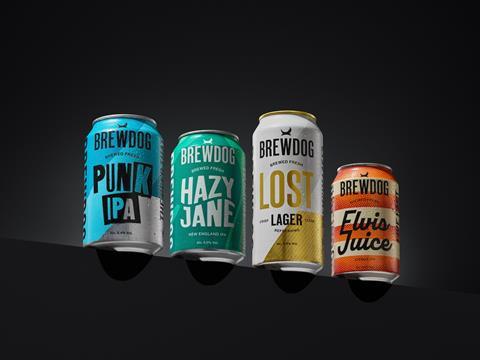
Having joined BrewDog as CFO in October 2023, Taylor has little appetite to discuss what went before: “I wasn’t around, so I can’t comment on what happened then.” Instead, he champions BrewDog’s current set-up, where “our culture and team are incredibly important”. Tellingly, the brewer’s new five-point charter features a pledge to “listen and learn” whilst acknowledging “without us [BrewDog staff], we are nothing”.
Taylor insists the negativity circling BrewDog online doesn’t reflect how most consumers feel about the brand. “I don’t think BrewDog has an image problem,” he says. “It’s boring to focus on data, but the data says consumers think of us as a business that produces really high-quality beer. That’s how we’re perceived by the vast majority of the public.”
More Big Interviews:
-
Andrew Howard: Beechdean’s pedal-to-the-metal ice cream man
-
Little Dish’s Hillary Graves: on the right side of the childhood obesity debate
-
GrowUp CEO Mike Hedges on the future of vertical farming
-
Why Pip Murray is taking Pip & Nut beyond nut butter
Nor does Taylor concern himself with what Watt – now a vocal Government critic and husband to former reality TV star Georgia Toffolo – posts on his socials. Whenever he as much as sneezes on LinkedIn, BrewDog is invariably mentioned in the same breath.
“My job is not to worry too much about the perception [of Watt] within the beer-drinking or wider public,” he says. “My job is to ensure that when consumers think of BrewDog they think of the best IPA, the best lager, the best amber ale, the best stout.
“James did an unbelievable job. He created this brand and beers and this incredible site. We’re incredibly grateful for that. He remains a non-executive board director, but he doesn’t play a part in the day-to-day running of this organisation.”
A rollercoaster business
That day-to-day operation is a demanding one. James Arrow – Taylor’s predecessor – lasted less than a year before standing down for personal reasons in March, while a slew of experienced retail, hospitality and fmcg execs have all tried and failed to get to grips with the rollercoaster that is BrewDog down the years.
Taylor believes he is well equipped to handle the pressures. His experience working for “fast-paced, private equity-backed businesses” – before Mayborn, he worked in senior finance roles for luxury fashion brand Anya Hindmarch and haircare company GHD – is a particular plus as BrewDog faces fiscal challenges.

Name: James Taylor
Born: Newcastle
Lives: Harrogate
Age: 50 (I feel 40, but look 60!)
Family: Married with two daughters and two dogs
Potted CV: CFO at Mayborn Group, Anya Hindmarch and GHD
Career highlight: Being asked to be CEO of BrewDog on the same night as my daughter’s 18th birthday party. Nothing brings you back to earth like having to police an 18th!
Business icon: Anyone who can do a CEO role
Item you couldn’t live without: Sadly, my laptop: it goes everywhere
Favourite film: It’s a Wonderful Life
Favourite album: (What’s the Story) Morning Glory? by Oasis
Favourite restaurant: L’Enclume
Favourite BrewDog beer: Punk (headliner) and Pinball (current favourite)
In 2023 – Watt’s final full year at the helm – net revenues grew 12% to £281m, but profitability remained elusive. Trading EBITDA losses narrowed from £12.8m in 2022 to £2.5m, but pre-tax losses ballooned from £25m to £59m.
Taylor downplays the significance of the pre-tax figure. However, he admits the scale of EBITDA losses in 2022 were “unsustainable for any business”. Part of his remit, initially as CFO and then as CEO, has been to “bring some more governance into the business”.
That’s meant fewer of the big, brash marketing stunts for which BrewDog has historically been known, and more considered A&P spend in consumer-facing areas like its bars and the mults.
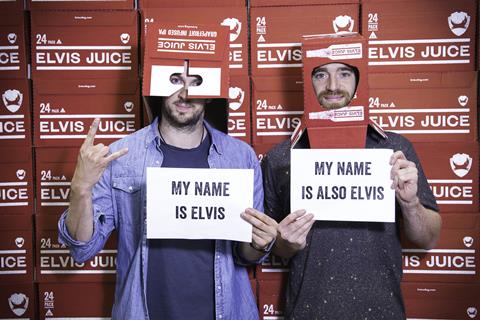
There has also been cost-cutting – BrewDog stopped paying the real living wage to new starters in its bars in January – as well as restructuring. Hawkes cider, a 2018 acquisition, has been mothballed. Meanwhile, BrewDog’s £4.5m ‘Overworks’ site has long since ceased to be a “state-of-the-art sour beer facility” and now houses the brand’s growing spirits arm.
“We’ve grown revenue exceptionally well over many, many years. What we’ve not seen is the profitability following,” says Taylor. “It’s about being considered about where we spend money. All businesses are looking at return on investment, and we’ll continue to do that.”
Taylor’s fiscal focus appears to already be bearing fruit. Despite revenues remaining flat at £280m, BrewDog returned to profit in 2024, posting adjusted EBITDA of £7.5m, according to company financial results posted this week.
That’ll be music to the ears of private equity backer TSG, which invested £213m in return for a 22% stake in BrewDog in 2017. Leaked documents uncovered by the BBC showed TSG believed Watt was “spending aggressively” in pursuit of an “unattainable valuation” for the company, as he chased an IPO that never materialised.
The leaner, less controversial company envisioned by Taylor has unsurprisingly gone down better. “TSG are, without question, the most supportive private equity business I’ve ever worked with,” he says. “They’re hugely supportive of the business and what the new management team wants to do, both in terms of strategic direction and financially.”
Thanks to an 18% compounding interest clause inserted into the deal with TSG, the private equity firm’s stake is now worth north of £700m. Its shares are deemed a higher class than those of BrewDog’s 220,000 Equity for Punks (EFP) investors – another source of controversy. When BrewDog floats or sells up, there are suggestions its initial backers could be less handsomely rewarded than TSG.
No plans for an IPO
But Taylor pours cold water on any rumours of a sale or IPO. “The ‘for sale’ signs are not up over this business,” he insists. “There’s no immediate intention to divest, and TSG is not pushing that agenda. The job for me and my team is to grow this business for all shareholders – whether that’s TSG, EFPs or other shareholders. What the shareholder structure looks like doesn’t make my job any more difficult and I don’t focus on that, or on compounding interest or anything like that.
“We’ve got enough on our plate without worrying about future ownership and divestments, who might buy us at what price. Those conversations may become more relevant in the future, but at the moment, it’s not on the agenda. We’ll worry about that on a different day.”
A more pressing concern is the performance of some of BrewDog’s big hitters in grocery. While Wingman Session IPA and Black Heart Stout have added £9.6m and £2.1m respectively in the past year, BrewDog’s two biggest beers – Punk IPA and Lost Lager – have shed a combined £10.7m [NIQ 52 w/e 19 April 2025].
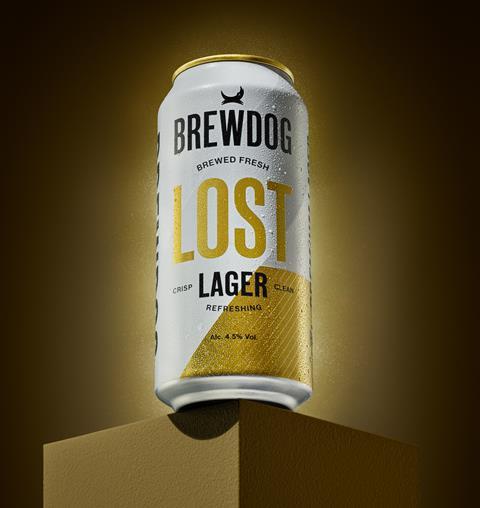
Lost Lager’s showing reflects the “unbelievably competitive” nature of the lager fixture, Taylor says. Declines were driven by pulling back on promotional activity that “frankly, wasn’t appropriate”, but recent warm weather has seen it return to growth, he says.
Meanwhile, Punk IPA remains one of its “huge brands that dominate wholesale and UK grocery craft fixtures”, he says, alongside Hazy Jane and Wingman.
Despite weak consumer confidence and moderation trends, Taylor remains bullish. BrewDog’s off-trade share is “as high now as it’s ever been”, while consumers drinking less but drinking better “absolutely plays into our wheelhouse”.
With a new look and new faces at the helm, BrewDog has “evolved once again into a new era”, he says. “We’re going to move at pace and do some really innovative and exciting things.”
It all sounds very positive – but his toughest job will lie in convincing the brewer’s harshest critics.
BrewDog’s most controversial moments
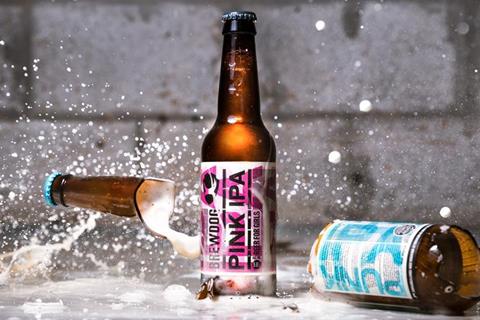
- Toyko (2009): Rallies against Portman Group ruling against its Tokyo ale. Later reveals it filed the complaint itself.
- Don’t Make Us Do This (2015): Watt & Dickie draw fire for dressing up as homeless people and sex workers to promote BrewDog’s Equity For Punks crowdfunding initiative.
- Pink IPA (2018): Launches a satirical Pink IPA to highlight gender pay gap. Gets accused of gender stereotyping.
- Workplace culture (2021): Watt is forced to apologise after former workers alleged a “culture of fear” within the business and “toxic attitudes” towards staff.
- Serious allegations (2022): Watt is accused of inappropriate behaviour and an abuse of power by ex-employees in a BBC documentary. Watt’s complaint to Ofcom about the documentary is later rejected.
- World Cup protest (2022): BrewDog takes a virulent stance against the World Cup being held in Qatar. Continues to ship beer to the country for the tournament and show games in its bars.
- Gold can promotion (2023): BrewDog advertises a promotion offering the chance to win “solid gold” cans of Punk IPA. Watt pays competition winners £500k from his own pocket after cans were revealed to only be gold plated.
- Living wage (2024): BrewDog announces it will no longer pay new staff the real living wage.







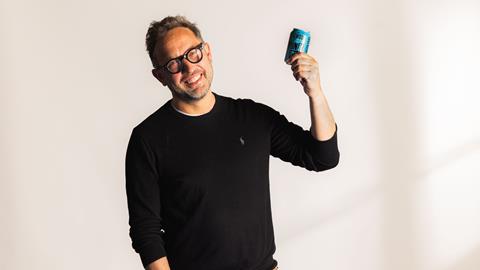






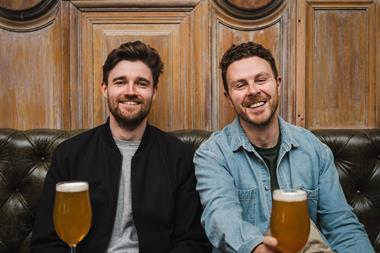
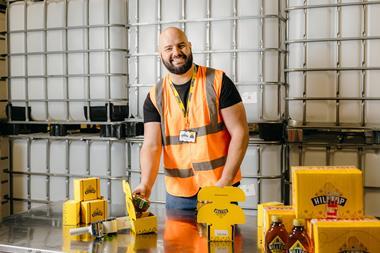
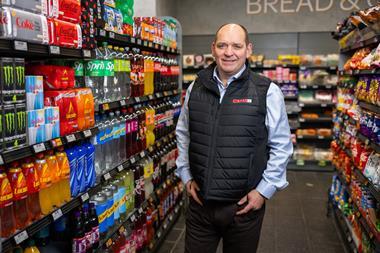

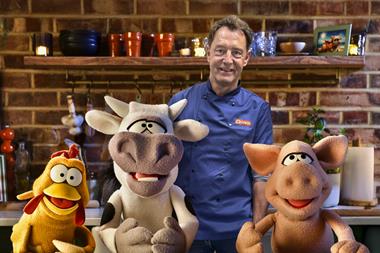
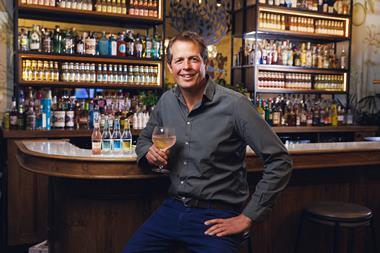
No comments yet